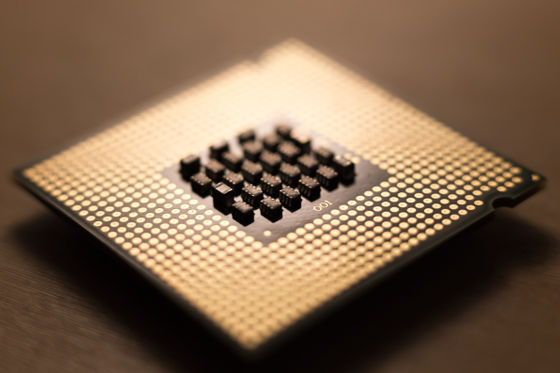It is pointed out that Intel's sale is likely to be blocked by a 'cross-licensing agreement' with AMD

by
Intel, which has fallen behind in the AI chip race and is in a difficult position, has been rumored to be selling part of its business to Broadcom, or to be forming a government-led joint venture with TSMC. However, even if Intel wanted to separate part of its business and start anew, it is expected to face difficulties due to its old contract with AMD, reports Tom's Hardware, an overseas media outlet.
AMD could block the sale of Intel due to a cross-licensing agreement | Tom's Hardware
https://www.tomshardware.com/pc-components/cpus/amd-could-block-intel-sale-due-to-a-cross-licensing-agreement
Consulting firm Digits-to-Dollars pointed out in November 2024 that the cross-licensing agreement that Intel and AMD signed to resolve their long-standing dispute over x86 includes a clause regarding the transfer of business.
A cross-licensing agreement between Intel and AMD allows each company to use the other's intellectual property. This allows AMD to manufacture x86-based processors using Intel's instruction set extensions without being sued for patent infringement, and allows Intel to incorporate AMD's innovations into its own CPUs without the risk of litigation.

The cross-licensing agreement includes a sale clause, meaning that the agreement will immediately terminate if either company enters into a joint venture involving a merger, acquisition or change of ownership.
However, the scope of the cross-licensing agreement, which consists of multiple contracts spanning multiple years, is vast and covers the entire product line, including CPUs and GPUs, making it extremely difficult for either company to create competitive products without using the other company's technologies.
Therefore, if the current cross-licensing agreement ends due to a sale or merger of Intel's business, the acquiring company will have to enter into a new cross-licensing agreement with AMD, but it is unlikely that AMD will agree to the renegotiation because it would mean the emergence of a more formidable competitor for AMD.
For example, Broadcom, a company often mentioned as a potential buyer of Intel's business, is traditionally known for its communications and wireless technologies, but in recent years has become a major presence in the custom AI processor market and has partnerships with virtually every cloud provider and
From AMD's perspective, Broadcom is already a tougher competitor than Intel, which does not have a clear AI strategy, and if Broadcom acquires Intel's CPUs, it will become an even bigger competitive threat, so AMD is unlikely to allow Broadcom to acquire Intel. Tom's Hardware suggested.

Digits-to-Dollars says that AMD and Broadcom could team up against NVIDIA, but Broadcom is seen as aiming to strengthen its position in the data center market, which is suffering from a CPU shortage. If it acquires a data center CPU business like Intel's, Tom's Hardware believes that it is likely to prioritize the development of its own AI data center platform over AMD's support.
'Of course, industry-standard platforms like Ultra Ethernet could make AMD's battle with Broadcom easier as it takes on NVIDIA, but it's also true that Broadcom is a much tougher challenge for AMD than Intel,' Tom's Hardware said.
Related Posts:
in Note, Posted by log1l_ks






